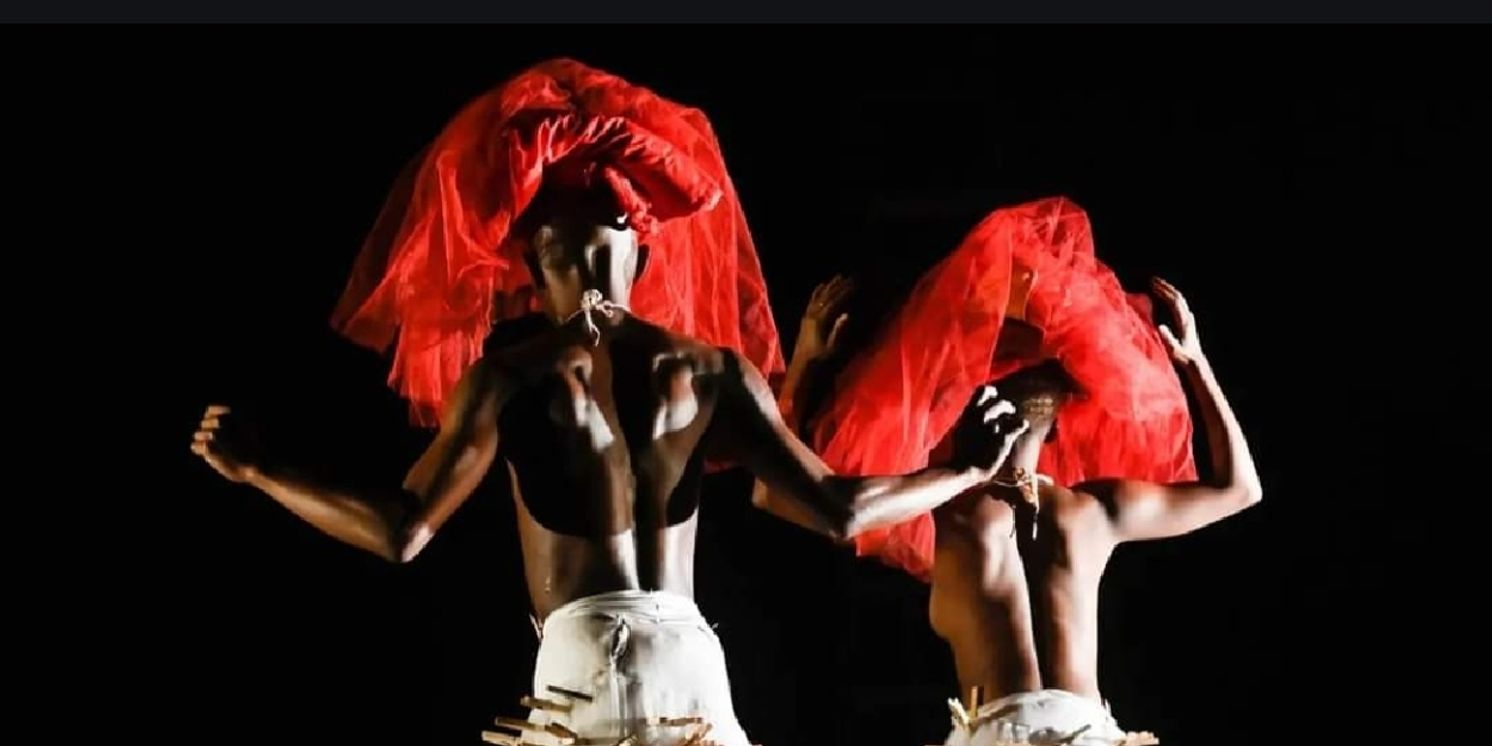Review: HATCHED ENSEMBLE - MAMELA NYAMZA AT DANCE UMBRELLA, Barbican Theatre
Dance Umbrella Festival runs at various venues, and online until 31 October.

![]() Dance Umbrella 2024 opened at the Barbican last night for the 46th year of the cutting-edge dance festival. People have come to expect the opportunity to see experimental work during the run, and last night didn't disappoint in this sense.
Dance Umbrella 2024 opened at the Barbican last night for the 46th year of the cutting-edge dance festival. People have come to expect the opportunity to see experimental work during the run, and last night didn't disappoint in this sense.
HATCHED ENSEMBLE by Mamela Nyamza is an 80 minute work that discusses many things. Nyamza is a layered catalyst; a black, lesbian South African woman and mother, who had many disappointments and rejections during her training, especially in ballet.
Nyamza used those personal experiences, over the course of her creative career starting in 1998 to lead us to where we are today. A work with ten dancers, one singer and one musician exploring agency, the space within genre in relation to inclusion and dance as a form of therapy.

When a choreographer describes their own work as a “never-ending journey” contexts need to shift. HATCHED ENSEMBLE feels very much more practice as research, as opposed to a finished article in the performative sense. Consequently periods can feel elongated and loose, but perhaps this is just the deal when creating something from a starkly honest place.
I most connected with the last 20 minutes of the piece. This is where the live music becomes the raison d'être, infusing the exuberant movement, and taking us to a place where Xhosa dance is all for the taking. By now the pointe shoes have come off, so the dancers use their feet and legs in different ways; soft shuffles, bound stamps, rhythmical heel scuffs and they do it all in a tight pack riding the atmospheric beats and covering the space like a migrating herd.
The beginning of the work has a very different feel. The group behave as a slow-motion montage, moving so slowly you barely notice they are in fact changing location. Mostly sat facing away from the audience, bare-chested with a collection of small, wire props including cockerels, and wind turbines they go about their atmospheric business to a recorded version of "The Dying Swan" from Saint-Saëns' "Le Carnaval des animaux". As we know, it's a beautiful piece of music, but on a loop for 30 minutes plus is enough to test even the most hardened devotee to distraction.
The dancers wear long skirts covered in washing pegs, and when they begin to bourrée, the associated wiggle through the body takes the material to a place of soft, continuous movement. The bourrée is an interesting step to analyse from different perspectives. It's pointe work 101, acts as the key mode of travel for (generally speaking) female dancers, is used as an axis of power in narrative ballets: “I'm here and not moving” and is also the cause of chronic toe pain and the beginning of many long-term problems for dancers as their careers progress and finish.
I'm sure Nyamza could talk for hours on all the reasons she uses it for, but via the work one reads power through stance, anger through aggressive stabbing and joyful disregard when they’re removed and used as a form of percussive instrument. The cast also includes male dancers who do exactly the same choreography as their female counterparts.
The largely bare stage features a washing line throughout, which is used for both its original purpose as costume changes take place and as a form of partner. The dancers can take risks with their balance when en pointe and wrap their arms around the line like inquisitive snakes. This short interlude gets the observational juices flowing.
Elsewhere I felt a personal contradiction of respect and weariness. I believe everyone has the right to tell their story and take back the control that's been withheld from them. Autobiographical work can often ask a lot of the audience, which is absolutely acceptable, however being met halfway is much appreciated. The music and musicians saved me, otherwise I fear I would've had less patience with Nyamza’s important, cathartic work.
Dance Umbrella Festival runs at various venues, and online until 31 October.
Photo Credits: Val Adamson
Reader Reviews

Videos

